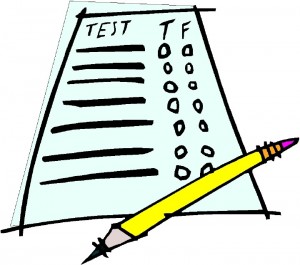Listen to educators Candi Peterson, Nils DeVito and James Boutin on Voice of Russia Radio
Audio clip: Adobe Flash Player (version 9 or above) is required to play this audio clip. Download the latest version here. You also need to have JavaScript enabled in your browser.
Interview by Pete Tucker, written report by Chris Lewis (@Chris_Lewis_)
Washingtonians and New Yorkers, be warned. If the mayor has his way, your child’s walk to school next year could be a whole lot longer.
Earlier this year, Mayor Vincent Gray and Schools Chancellor Kaya Henderson commissioned a report that recommended turning around or closing 38 public schools. Meanwhile, in New York City, Mayor Michael Bloomberg is seeking to close 24 schools deemed to be underperforming.
“What’s so sad is that the community has had no say in it, and the teachers have no say in it,” said Nils DeVita, a teacher and union delegate in New York. DeVita spoke with Voice of Russia’s Capital Correspondent on Tuesday, in a show guest-hosted by TheFightBack’s Pete Tucker.
Critics levy similar charges here in DC. “Our concern is that these people have come in from Chicago, many of whom have not visited the schools they’ve recommended to close, and there have been no focus groups, no parental involvement,” said Candi Peterson, a social worker at Cardozo High School.
Perhaps a sign that the proposed school closures come with little community input: in Washington, DC, Gray and Henderson’s report recommended closing 26 schools in impoverished Wards 7 and 8, but none in affluent Wards 2 and 3. Peterson and DeVita slammed the study for making its recommendations exclusively from standardized test scores—at best an incomplete indicator of a school’s educational performance.
But policymakers argue that school closings are a fiscal necessity. “What we have is unsustainable,” Mayor Gray told Tucker at a press conference in April. “Every budget town hall meeting we’ve conducted, somebody stands up to talk about the ancillary services that they would like to see in schools. There’s no way to do that because the dollars just simply aren’t there.”
The District currently serves 77,000 students in 220 public or public charter buildings. “We’re going to have to consolidate the number of schools that we educate our children in,” Gray said.
But that doesn’t mean the process can’t be transparent, counters Peterson, who blogs at The Washington Teacher. “We’re not suggesting that schools shouldn’t be closed, but there should be a valid study done, and it should be a process in which the community, the parents and educators are involved along the way,” she said.
In DC, the political winds continue to blow towards more charter schooling. Indeed, IFF, the consulting firm that produced the report, has close ties to the charter school movement. Proponents of the schools—such as Bill Gates and Secretary of Education Arne Duncan—argue that their increased autonomy helps deliver better educational outcomes.
Peterson is not drinking the charter school Kool-aid. ‘This is really privatization of public education. I think we’re seeing it across the country,” she said.
Related Stories:
DC Officials Insist On Improving Schools By Closing Them, April 20, 2012
Silencing Dissent: WTU VP Candi Peterson’s Removal From Office, Oct. 20, 2011
Reviewing Rhee’s Reign: A 2010 Interview with Teacher/Bloggers Candi Peterson and James Boutin, Aug. 5, 2011

